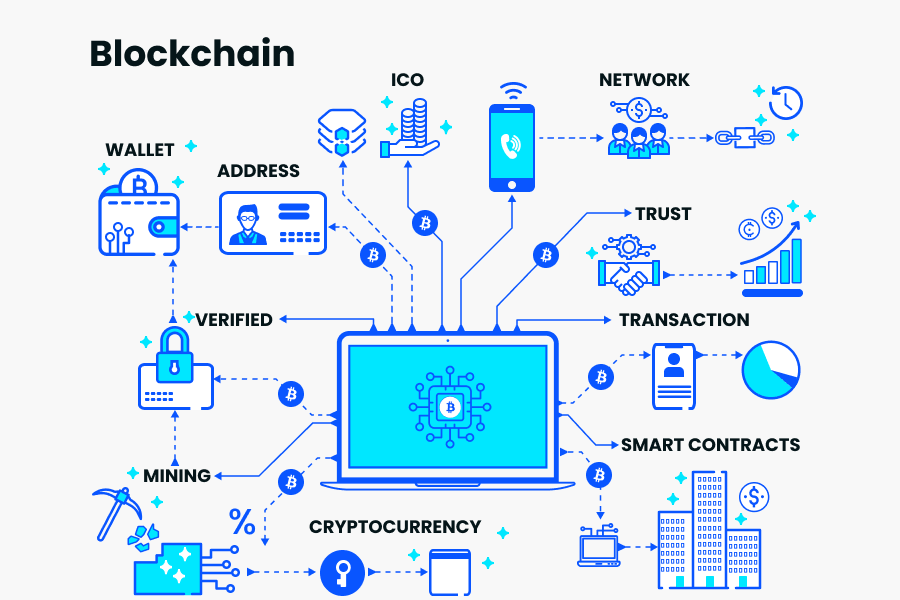 06, Oct
06, Oct
Understanding Blockchain and its application in todays world
Blockchain is a decentralized, distributed ledger technology that securely records transactions across multiple computers. Its key features—transparency, security, and immutability—enable various applications across different sectors today. Here are some notable applications:
1. **Cryptocurrencies**
- **Bitcoin and Ethereum**: These are the most well-known applications, providing decentralized digital currencies that allow peer-to-peer transactions without intermediaries.
2. **Supply Chain Management**
- **Traceability**: Companies use blockchain to track products from origin to sale, ensuring transparency and reducing fraud. For example, IBM and Walmart use it to trace food products, enhancing safety and accountability.
3. **Smart Contracts**
- **Automated Agreements**: These self-executing contracts with the terms directly written into code enable automated transactions when conditions are met. They are used in various industries, including finance and real estate.
4. **Healthcare**
- **Patient Data Management**: Blockchain can securely store patient records, ensuring data integrity and privacy. It also facilitates secure sharing of medical data among providers.
5. **Identity Verification**
- **Digital IDs**: Blockchain can provide secure and verifiable digital identities, reducing identity theft and fraud. Solutions are being developed for both individuals and businesses.
6. **Voting Systems**
- **Secure Elections**: Blockchain can enhance the security and transparency of voting processes, potentially increasing public trust in electoral outcomes.
7. **Real Estate**
- **Property Transactions**: Blockchain can simplify and secure property transactions by providing transparent records of ownership, thus reducing fraud and increasing efficiency.
8. **Financial Services**
- **Cross-Border Payments**: Blockchain enables faster and cheaper cross-border transactions, benefiting remittances and international trade. Companies like Ripple are focused on this area.
9. **Energy Sector**
- **Decentralized Energy Trading**: Blockchain can facilitate peer-to-peer energy trading, allowing individuals to buy and sell excess renewable energy directly.
10. **Intellectual Property Protection**
- **Ownership Rights**: Artists and creators can use blockchain to register and protect their intellectual property, ensuring they receive fair compensation.
Conclusion
Blockchain technology is transforming various industries by enhancing transparency, security, and efficiency. As its adoption grows, we can expect more innovative applications and solutions that address current challenges across different sectors.




